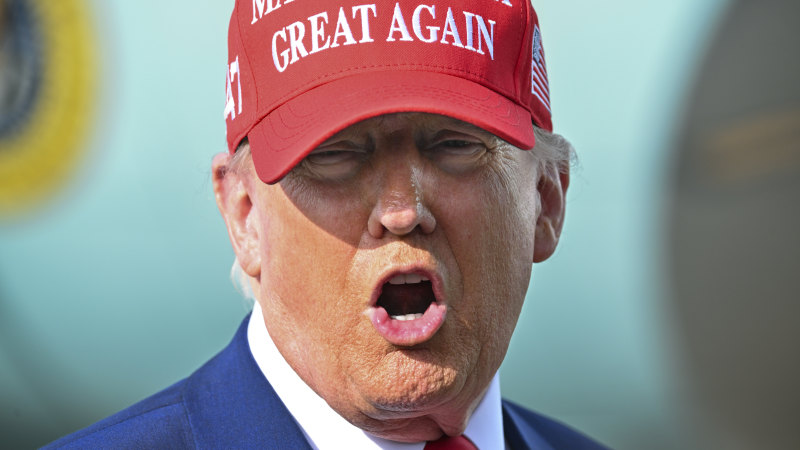
The federal government is poised to take an unusual step in its relationship with private enterprise, as President Donald Trump has initiated plans for the government to become an equity shareholder in Intel, a major player in the semiconductor industry. This move marks a significant departure from traditional conservative values that advocate for limited government intervention in business affairs.
In August 2023, Trump called for the resignation of Intel’s CEO, Lip-Bu Tan, based on unverified claims regarding his investments in Chinese technology companies allegedly linked to the Chinese military. Tan, a U.S. citizen born in Malaysia, was in the White House discussing the future of Intel when Trump proposed the government’s equity stake. This proposal effectively transforms nearly $9 billion in funding promised to Intel under the CHIPS Act into a government shareholding arrangement.
Trump’s comments during the meeting were telling. “You know what? I think the United States should be given 10 percent of Intel,” he reportedly told Tan. Following the meeting, Trump took to social media to express his enthusiasm for such arrangements, indicating his willingness to “make deals like that for our Country all day long.”
Trump’s actions have sparked concerns among many conservative commentators, who argue that this represents a troubling shift in the Republican Party’s stance towards capitalism. If a Democratic president had pursued a similar strategy, it would likely have been labeled a political shakedown and an assault on free enterprise. Critics point out that Intel, which had a market capitalization of $500 billion at the beginning of the century, has seen its value plummet to around $107 billion in recent years, raising questions about the wisdom of government investment in a struggling company.
The justifications for this intervention—claiming Intel’s systemic importance to the U.S. economy or its role in national security—are not as compelling as they may seem. The semiconductor market is diverse and robust, with successful companies like Nvidia, Micron, and Qualcomm driving innovation and economic growth. Should Intel falter, it would merely join the ranks of other once-prominent American corporations that have fallen from grace, such as Sears and General Electric.
Despite Intel’s assurances that the government’s stake will involve “passive ownership,” with no governance rights, the implications are troubling. The presence of government influence in corporate governance can create an atmosphere of fear and compliance among businesses, which may now feel pressured to align their operations with the whims of political leaders. This situation could lead to a chilling effect on innovation and economic freedom as corporations adjust to the new reality of government involvement.
Republican supporters of Trump’s approach may find themselves grappling with the long-term consequences for America’s economic landscape. The risk of increased government control over businesses, typically viewed as a progressive agenda, is now being embraced by elements of the conservative movement.
As the Trump administration continues to exert influence over various sectors, concerns grow that this could set a precedent for similar interventions in other companies. The potential for future administrations to adopt a similar approach raises alarm bells for proponents of free markets.
In conclusion, Trump’s actions regarding Intel represent a fundamental shift in the Republican Party’s relationship with capitalism. What began as a conservative movement centered on limited government intervention is evolving into a model that embraces state involvement in private enterprise. As this trend continues, both conservatives and liberals alike may find themselves facing a new political landscape where government and business interests become increasingly intertwined.







